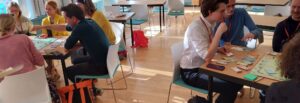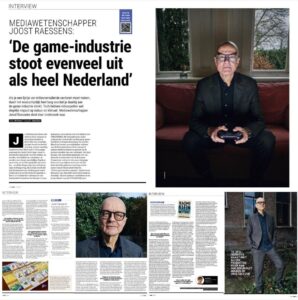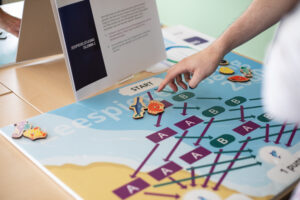
On April 30th 2025, the Utrecht Gamelab and the Manchester Game Centre at Manchester Metropolitan University collaborated on a first-of-its-kind hybrid three-hour co-design workshop, building on the work of Chloe Germaine and Paul Wake on ‘game hacking’ and the ‘franchise hacking’ technique developed by the Utrecht Game Lab on the basis of Germaine and Wake’s earlier work to experiment with re-designing Magic: The Gathering (MTG) as a medium for climate education.
The workshop builds on earlier collaborations using the same methodology, e.g. with the Wageningen University Games Hub, but this was the first fully hybrid application, using MS Teams in conjunction with a digital workflow developed by the Utrecht Game Lab to playtest and co-design custom MTG cards and card decks related to climate threats and sustainable futures. At the same time, it served as a trial run for a similar workshop the team from Manchester and Utrecht will organize at UK Games Expo, one of the biggest analogue game trade shows in Europe, later in May 2025.
After playtesting existing and custom nature-themed MTG decks and a short plenary discussion about representations of natural phenomena in the ‘procedural language’ – i.e. the distinctive rules, card types and game mechanics – of MTG, the group collaboratively designed a few cards via an online Google worksheet. Being able to see the data translated into cards in real time using the freely available software tool NanDeck provided the necessary experience and confidence for participants in Manchester and Utrecht to work on their own cards designs. The exploratory workshop concluded with a discussion of the newly created cards, the underlying themes and experiences they speak to and reflections on how they could be incorporated into existing ecocritical decks or new deck concepts to more deeply explore a specific topic.
Despite the short timeframe and packed schedule, several interesting observations emerged from the experiment. For example, a few cards reflected distinct experiences of one of the two groups and their local/national context, like the problems dog owners face with the pervasive use of artificial grass in many bigger cities in the UK. Other cards addressed more personal but nonetheless common experiences like ‘doomscrolling’, i.e. the constant distraction coming from a deluge of poorly structured information consumed online (which problematizes climate communication and action). Yet other cards were informed by professional background, e.g. a card called ‘Concrete Slab’ created by a participant with experience in architecture and construction. One group even defined ‘pollute’ as a new keyword – in line with dozens of existing MTG keywords that alter card interactions and game rules – and created several cards using that mechanics, e.g. deliberately polluting the opponent’s ‘lands’ to disrupt their strategies.
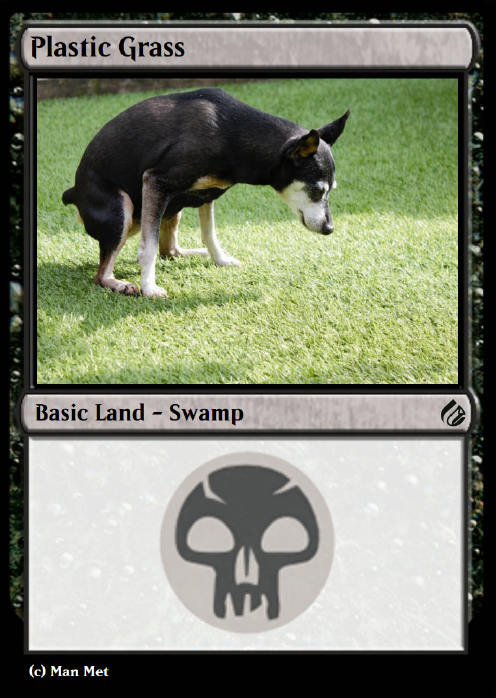
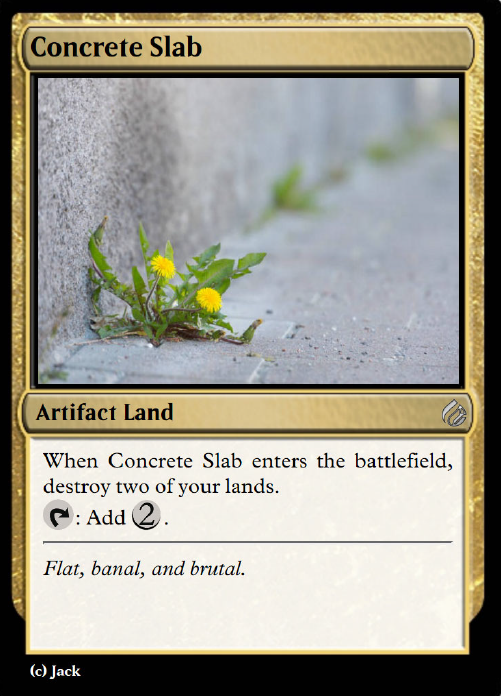
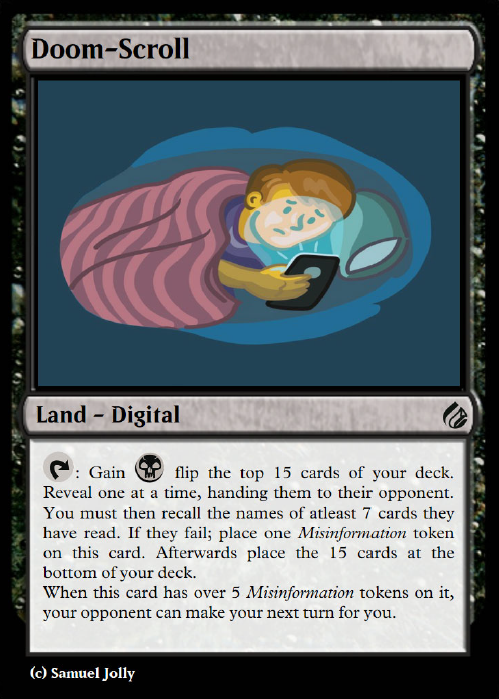
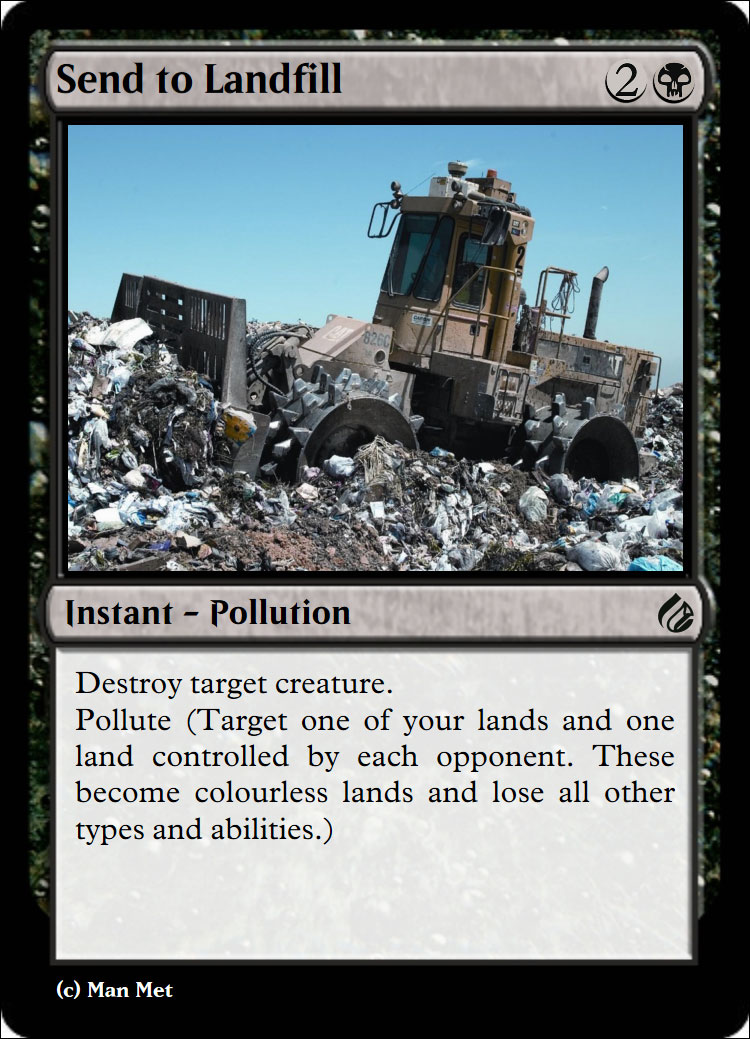
While the workshop only afforded time for a first design pass, the concluding discussion emphasized that these cards should serve as a conversation starter, prompting alternative versions as well as discussions about differences between both groups’ local knowledges and how the game may provide useful ‘vocabulary’ to playfully explore them further.

